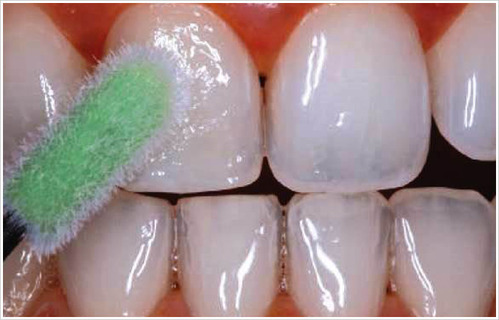Preword
Fluoride therapy is a commonly used dental treatment that aims to prevent tooth decay and strengthen tooth enamel. It involves the application of fluoride either topically, through the use of a fluoride toothpaste or mouthwash, or systemically, through the consumption of fluoridated water or supplements. While fluoride therapy has been widely implemented and endorsed by dental professionals, there is ongoing debate regarding its effectiveness and potential side effects.
1
Firstly, numerous studies have shown that fluoride therapy can effectively prevent and even reverse early stages of tooth decay. Fluoride ions are incorporated into the mineral structure of teeth, making them more resistant to acid attacks from bacteria and sugar. This remineralization process leads to stronger and more resilient enamel, reducing the risk of cavities. Additionally, fluoride therapy has proven particularly beneficial for individuals who are at a higher risk of developing dental caries, such as children and those with poor oral hygiene habits.
2
Secondly, studies have also indicated that communities with fluoridated water sources have experienced a significant decrease in the prevalence of tooth decay. The Centers for Disease Control and Prevention has even recognized water fluoridation as one of the ten greatest public health achievements of the 20th century. This suggests that fluoride therapy is indeed effective on a population level, helping to improve oral health and reduce the burden of dental diseases.
3
However, critics argue that excessive fluoride intake can lead to a condition called fluorosis, which causes dental enamel to become discolored. And, in severe cases, brittle and pitted. They claim that the benefits of fluoride therapy do not outweigh the potential harm, especially since fluoride is also present in many other sources such as certain foods, drinks, and dental products. Furthermore, some research has suggested a possible link between high fluoride exposure and adverse health effects, such as skeletal fluorosis, neurological disorders, and hormonal imbalances.
Nevertheless, it is important to note that the vast majority of scientific studies and dental organizations consider fluoride therapy to be safe when used appropriately. The American Dental Association strongly supports the use of fluoride in preventing and controlling tooth decay and asserts that the potential risks are minimal compared to the significant benefits. Additionally, new technologies and advances in dentistry have allowed for more targeted and controlled application of fluoride, reducing the likelihood of overexposure.
Conclusion
In conclusion, fluoride therapy has proven to be an effective tool in preventing tooth decay and promoting oral health. While concerns about potential side effects exist, the overwhelming body of evidence suggests that the benefits of fluoride therapy outweigh the risks. Particularly when used within recommended guidelines. Dental professionals continue to advocate for the use of fluoride in various forms to improve oral health outcomes. Especially in communities with limited access to quality dental care. Ultimately, each individual should consult their dentist and make informed decisions regarding fluoride usage based on their specific oral health needs and concerns.




